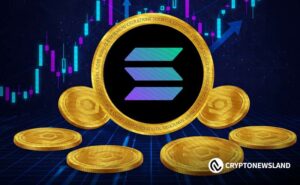MegaETH Valuation Game: A Good Entry Opportunity or Approaching Risk?
The L2 project MegaETH, backed by Vitalik, is about to launch its public sale.
Original author: KarenZ, Foresight News
MegaETH, with its technological breakthrough of "real-time blockchain" and its community-driven ecological philosophy, has become a focal project in the crypto market.
While the Ethereum ecosystem is still struggling with performance bottlenecks, MegaETH is reshaping the boundaries of imagination for the Layer 2 track with its technological declaration of "100,000 TPS + millisecond latency."
From the early seed round investment participated by Vitalik, to the lightning fundraising by the Echo community, and then to the NFT sale at the beginning of this year, every step of MegaETH has stirred the nerves of the market.
This article will break down the financing context, valuation logic, core value, and potential risks.
MegaETH Financing Journey: From VC and Vitalik Endorsement to Community Building
As an Ethereum L2 project committed to achieving "real-time blockchain," MegaETH's financing journey demonstrates an evolution from VC funding to community-driven sales.
In June 2024, MegaETH announced the completion of a $20 million seed round, led by Dragonfly, with participation from Figment Capital, Robot Ventures, Big Brain Holdings, and others. Angel investors included Vitalik Buterin, ConsenSys founder and CEO Joseph Lubin, EigenLayer founder and CEO Sreeram Kannan, ETHGlobal co-founder Kartik Talwar, Helius Labs co-founder and CEO Mert Mumtaz, Hasu, and Jordan Fish (aka Cobie), among others.
By December 2024, MegaETH raised $10 million in less than three minutes through Cobie's Echo platform, far exceeding the set target of $4.2 million. This round attracted about 3,200 investors from 94 countries, with an average investment of $3,140 per investor.
At the time, MegaETH co-founder Shuyao Kong told The Block that both the seed round and Echo round used a structure of equity plus token warrants, with both rounds valued at "nine figures," meaning the FDV was at least $100 million.
To the community's surprise, in February this year, MegaETH launched the "The Fluffle" NFT series for innovative fundraising, further expanding its community base. All 10,000 NFTs in this series are non-transferable SBTs (Soulbound Tokens), sold via whitelist at a price of 1 ETH. Holders are collectively entitled to at least 5% of future token allocations, with 50% unlocked on TGE day and the remainder gradually unlocked over six months.
This NFT issuance was divided into two phases. The first phase (5,000 NFTs) was retrospective, targeting those actively involved in the crypto industry (from supporting key protocols to leading local communities), with a small portion allocated to influential early believers in the MegaETH community and various strategic partners, some of which were distributed as free mints. A week after launch, MegaETH announced the completion of the first phase NFT issuance.
According to MegaETH's previous plans, the second phase of NFT issuance will be launched a few months after the first, aiming to provide similar participation opportunities for users who continue to drive influential social and on-chain interactions for MegaETH. The difference in this round is that quotas will be allocated to MegaETH's flagship accelerator program "Mega Mafia." Each team will receive a portion of the quota to distribute within their own communities. A small portion of the quota in this round will be reserved for ordinary users through social media analysis.
According to the MegaETH website, the latest community sale is open to all users who have successfully completed identity verification on the Sonar platform and will use USDT on the Ethereum mainnet as the payment method. An English auction may be used, with a fixed maximum price cap. Choosing a one-year lock-up period will grant a 10% discount on the final token price. All US participants must be locked.
Valuation Logic: Historical Pricing, Market Expectations, and Core Value
MegaETH's valuation evolution is closely tied to its financing journey, market expectations, technological progress, distribution mechanism, and ecosystem.
Historical Financing Valuation: Climbing from $100 Million to $540 Million
As mentioned above, MegaETH's FDV in both the $20 million seed round in June 2024 and the $10 million Echo round in December 2024 was in the nine-figure range.
In the first phase of this year's NFT issuance in February, according to a screenshot posted by then-OpenSea Chief Marketing Officer Adam Hollander, MegaETH publicly raised 4,964 ETH in the first phase NFT sale, worth $13.29 million at the time.
According to the author's calculations, this $13.29 million represents at least 2.5% of the token allocation rights, which means that based on the NFT fundraising situation, MegaETH's FDV at that time was around $540 million.
Polymarket Forecast: 86% Probability of Hitting $2 Billion FDV
In the Polymarket prediction market regarding "MegaETH's FDV after the first day of launch," the probability of FDV exceeding $2 billion is 86%, the probability of exceeding $4 billion is 57%, and the probability of exceeding $6 billion is 21%.
This means that if MegaETH's FDV reaches $2 billion, the first batch of NFT holders would see a 3.7x return (in USD terms), while seed round and Echo round participants would have even greater profit potential.
Platform Effect: "Profit Effect" of Sonar's First Project
The Sonar platform (an Echo subsidiary founded by Cobie), where this community sale is taking place, comes with its own traffic halo. Its first fundraising project, Plasma, performed outstandingly—on the fourth day after TGE, it peaked at 34 times the sale price ($0.05), and it still maintains a 9x increase. This platform effect has further raised market expectations for MegaETH's valuation.
Core Value: Triple Moat of Technology, Mechanism, and Ecosystem
MegaETH's continued favor from capital and the community stems from its differentiated competitiveness in technological innovation, distribution mechanism, and ecosystem building.
On the technology front, addressing the common issues of second-level latency and insufficient throughput in existing L2s, MegaETH has significantly improved Ethereum's scalability by optimizing the execution environment and node architecture, while maintaining full compatibility with EVM. This directly addresses the core needs of high-frequency trading, real-time on-chain games, and other Web3 applications.
In terms of distribution mechanism, MegaETH has largely adhered to a community-oriented approach, from the seed round financing to the elite community-only fundraising platform Echo, and then to NFT sales targeting deeply involved crypto industry participants, in order to avoid the monopoly of shares by institutions typical in traditional fundraising.
It is worth emphasizing that the "The Fluffle" SBT series issued by MegaETH also abandons tradability, and the token release adopts a "TGE 50% + 6 months linear unlock" model. Once unlocking begins, the release of token rewards to holders is linked to the depth of network interaction, encouraging real user participation through a dynamic evolution mechanism.
On the ecosystem front, MegaETH is gradually expanding through the accelerator program MegaMafia, the flagship builder center MegaForge, and the stablecoin MegaUSD. The testnet has already attracted multiple applications, covering DeFi, social, gaming, AI, and other fields. Some selected applications include DEX GTE, stablecoin engine CAP, real-time perpetual contract platform Valhalla, trend trading platform NOISE, and more.
Risk Warning
Despite its highlights, MegaETH still faces multiple challenges. In comparison, the current mainstream Layer 2 valuations have already set a reference benchmark for the market: Arbitrum FDV is $3.2 billion, OP FDV is $2 billion, Starknet FDV is $1.2 billion, and Zksync FDV is $800 million. Against this backdrop, whether MegaETH can break through a $2 billion FDV remains uncertain.
As an early-stage project, MegaETH also faces risks such as technological implementation and overall market volatility. Investors need to maintain rational judgment and, after the detailed sales terms are announced, make prudent decisions based on specific pricing, FDV, and tokenomics. DYOR.
Disclaimer: The content of this article solely reflects the author's opinion and does not represent the platform in any capacity. This article is not intended to serve as a reference for making investment decisions.
You may also like
Ethena’s ENA Price Stabilizes Near $0.43 as Market Eyes $1.30 Target

Solana Slides to $195 as RSI Steadies and Buyers Defend $189 Support Zone

Bitcoin’s Next Move Could Set the Tone for Q4
All eyes are on Bitcoin as its next move may shape market direction heading into year-end.All Eyes on Bitcoin’s Next MoveTechnical and Macro Factors AlignVolatility Incoming: Be Prepared

